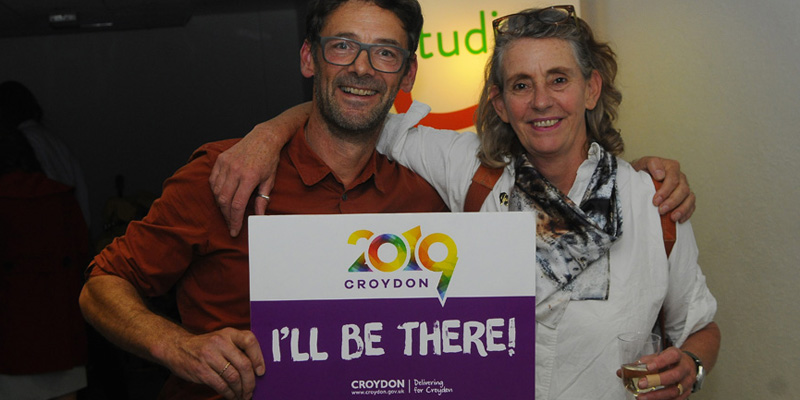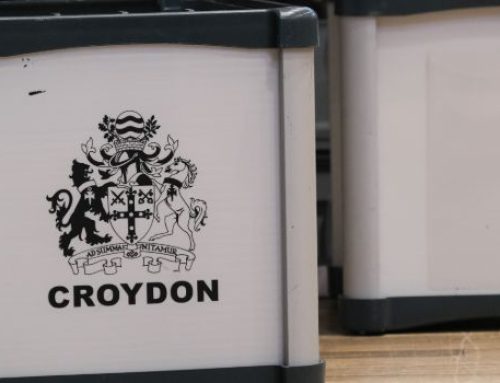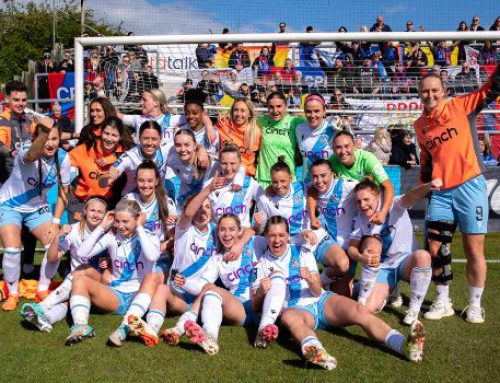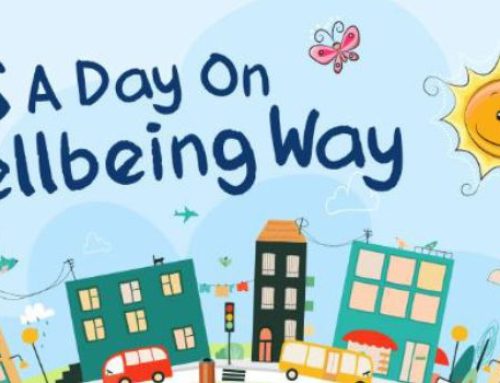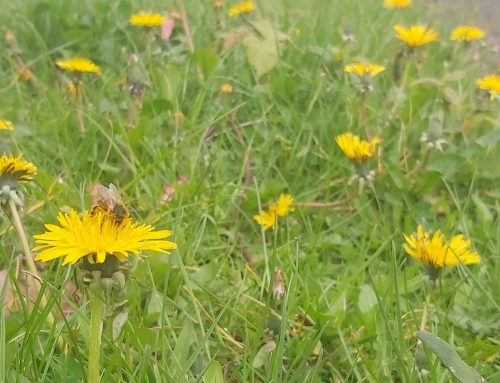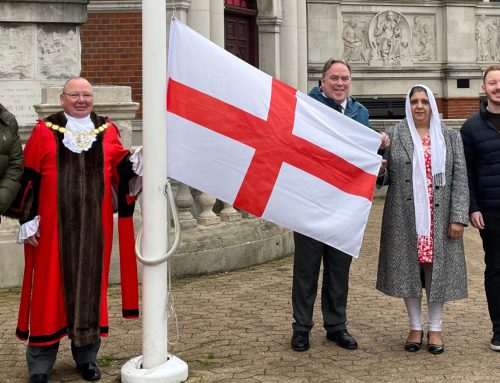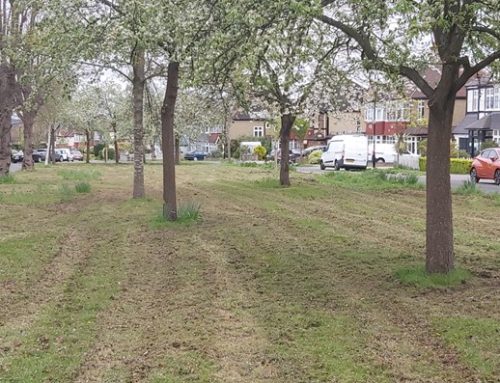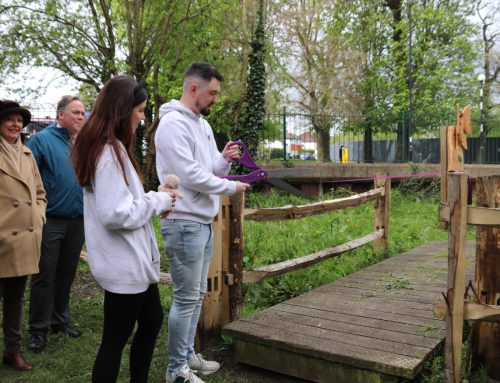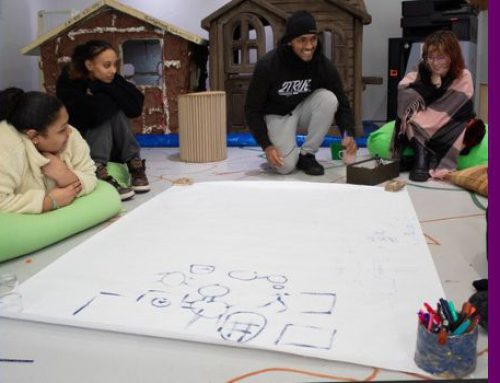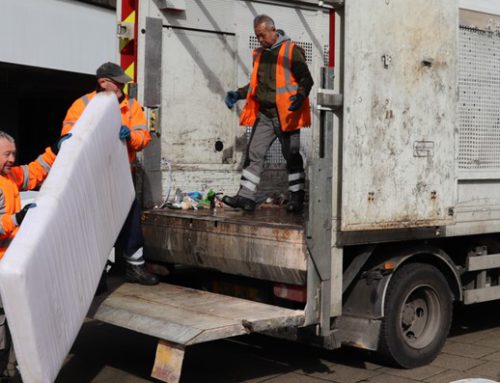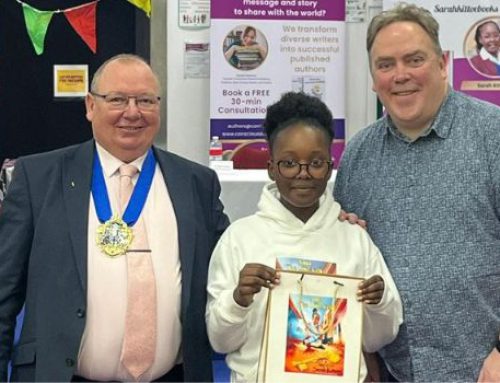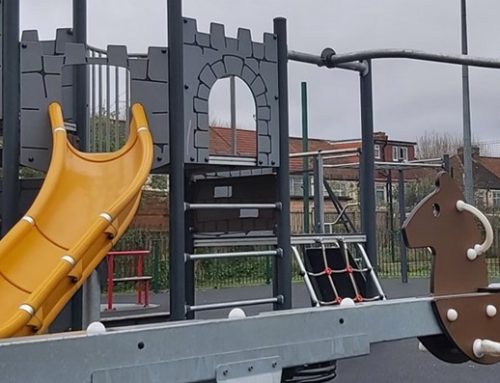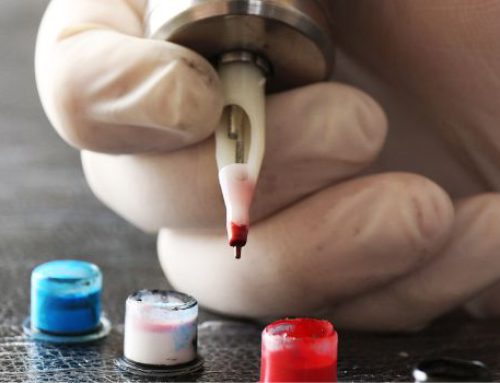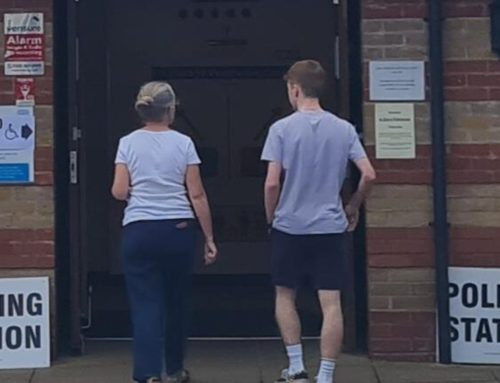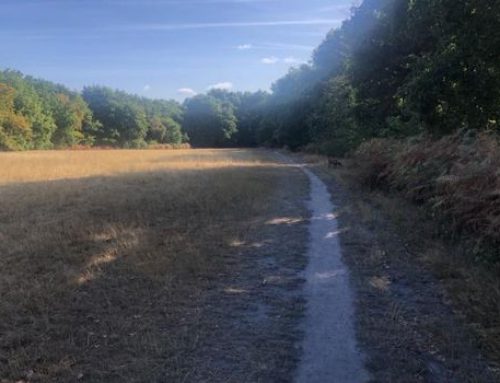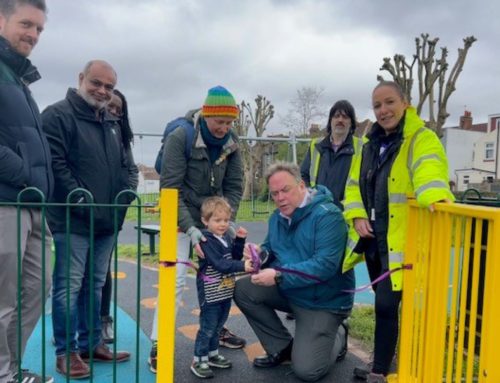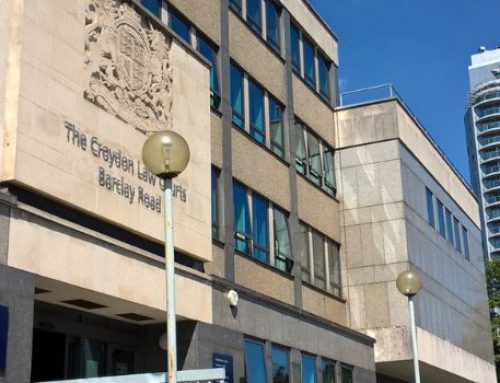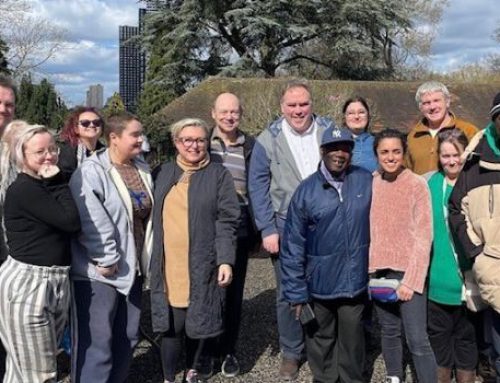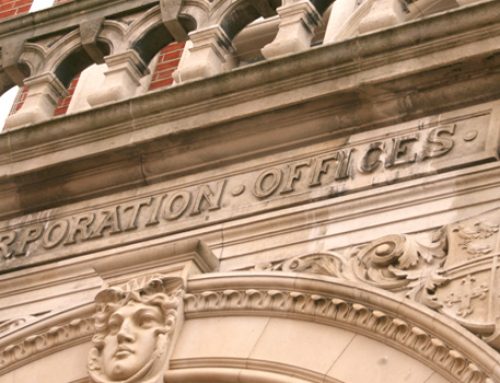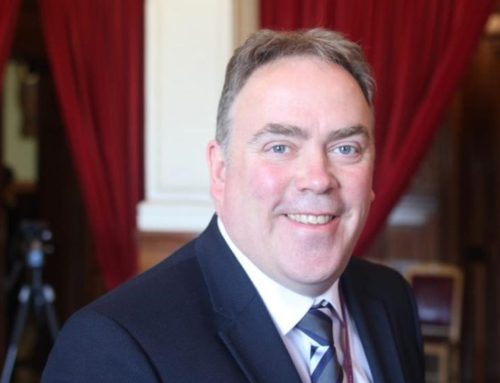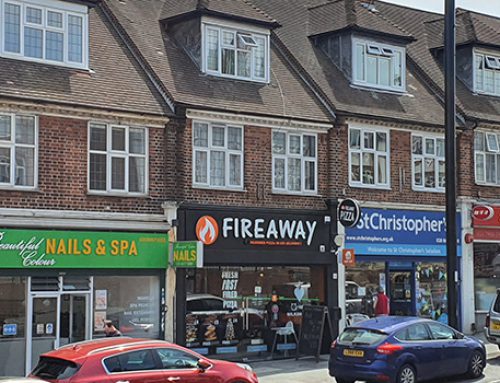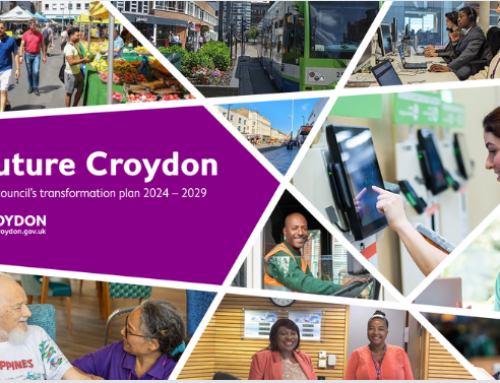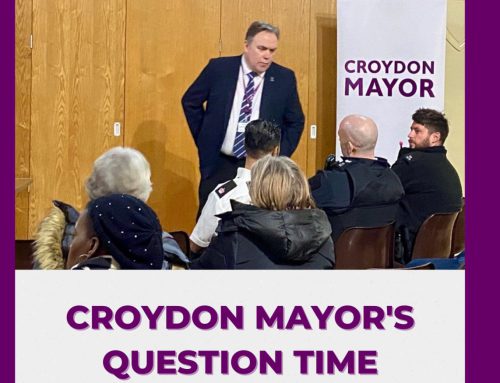A series of free public talks by contemporary artists will explore how art and artists interact with local communities.
Entitled ‘The Exchange Floor’, the talks take place at Croydon’s new Croydon Arts Store at 5.00 pm every Wednesday throughout November and into the first week in December. They have been arranged by Professor Charlotte Cullinan from the contemporary art research centre at Kingston University as part of the lead-up to the new Croydon Biennale arts festival which is scheduled for 2019.
The Biennale (ponounced ‘be-en–al–e’) is a major curated arts exhibition that will take place every two years and be London’s first such visual arts event. It is the result of a partnership between Croydon Council and Professor Louis Nixon, Kingston University’s associate dean of research and enterprise.
The planned event, as well as the Croydon Arts Store itself, have been initiated as part of Croydon’s £500m ‘growth zone‘ investment initiative.
The artists chosen for the Exchange Floor series are interested in self-organisation, resistance, the public realm, artist-studio-as-shop, and friendship.
“I’m really excited by the plans being put in place for the Bienalle. It’s another piece of the cultural jigsaw that should help see Croydon achieve London’s Borough of Culture title for 2019.”
Councillor Timothy Godfrey, cabinet member for culture, leisure and sport
The Arts Store is located in the Whitgift Centre in a four-floor space near to the main entrance from Wellesley Road. It is a collaboration between Croydon Council, Turf Projects (a Croydon-based artist-run contemporary art collective that hosts free exhibitions, workshops and events), Art Halo (an award-winning organisation working towards the vision of making high quality art activity available to all), and Kingston School of Art – which is recognised as one of the best art and design schools in teaching and research in Europe. The space was taken over with the support of the Croydon Partnership.
PROGRAMME
Margarita Gluzberg – 8 November
Margarita will be talking about her photographic project
As far back as 1992 Margarita Gluzberg walked down Bond Street in the West End of London, camera in hand, taking black and white photographs of exclusive shop fronts and people in front of them window shopping. From this point on one of her central interests has been the psychological dimension of consumer culture and an exploration of the manner in which consumers are affected by desire and the promise inherent in the luxury object intermediated by the gaze; the way in which viewers look at images of people.
The Consumystic series is a meditation on the mystical, ritual nature of material desire. All the material is shot on 35mm black and white slide film – exposed several times, and involves no digital manipulation. The camera becomes the interface between the consumer-voyeur, and the constantly changing, spectacular display of commodities.
Kathri Bohm – 15 November
Kathrin’s talk titled: TRADE will discuss her many publically engaged projects
Kathrin Böhm is a London-based artist whose collaborative work focuses on the collective (re-) production of public space, trade as public realm, and the every-day as a starting point for culture.
Kathrin is a founding member the international artist group Myvillages and the London-based art and architecture collective Public Works.
In 2014 she set up Company Drinks, an ongoing artwork in the shape of a community drinks enterprise based in Barking and Dagenham.
In 2016 she co-produced together with Rosalie Schweiker and many others the artist run Remain Campaign ‘EU-UK’, which now continues as ‘Keep it Complex – Make it Clear’.
Other recent projects and exhibitions include ‘Trade Show’ for Eastside Projects in Birmingham (co-curated with Gavin Wade), the two-year long ‘International Village Show’ together with MyVillages for the Museum of Contemporary Art in Leipzig and ‘Redrawing the Economy’, an ongoing action-research initiative together with economic geographer Katherine Gibson and the Community Economy Research Network.
Böhm is the co-editor of the upcoming ‘Learn to Act’ publication which documents the Eco Nomadic School, a self-organised, pan-European knowledge-exchange network Böhm co-organises, and she is currently on the advisory board for an upcoming conference on the rural, organised by the Whitechapel Gallery, London.
Rut Blees Luxemburg – 22 November
Rut will talk about her artist space: FILET
The London-based artist Rut Blees Luxemburg’s large-scale photographic works concern the alteration of the city. How does the transformation of photography impact on the representation of the urban? And can photography be an active agent in imagining and proposing a ‘commonsensual’ approach to the city?
FILET is a RESEARCH ORGAN situated in a physical space led by Rut Blees Luxemburg and Uta Kogelsberger (Newcastle University). FILET explores the production of new platforms for the creation, dissemination and networking of emergent strategies in contemporary art.
Going beyond the conventions of an exhibition, FILET facilitates international exchanges with Kim Kim Gallery in Seoul, as well as technologically innovative dissemination of research. Professor Amanda Beech, Dean of Cultural Theory at Cal Arts, Los Angeles, recently collaborated with FILET for the live-streaming of a public symposia: ‘How does Art think?‘ in partnership with Newcastle University, the New Center for Research, and Arts Practice, New York.
FILET is directed towards the global art and research community. With its base in London, at the heart of the Old Street digital round-a-bout, it is in close proximity to tech-city and the burgeoning dynamics of the local scene, while simultaneously collaborating with international artists, academics and researchers.
Dustin Ericksen – 30 November
Dustin will talk about his artist space: Naming Rights
‘Naming Rights’ is Dustin Ericksen’s artist space in Euston, a production and exhibition space which highlights economic and aesthetic contradictions.
Small-scale cultural economies in London and Europe face shrinking financial support.
Not-for-profit spaces as well as small commercial galleries have been affected by the ideological destruction of the welfare state and publicly supported cultural production.
Naming Rights has been deliberately established in the heart of this beleaguered space.
The main obstacle Naming Rights is facing is sustainability and securing the project for the future. Successful funding would provide the necessary time to focus on making difficult exhibitions and events, and securing future funding in new ways.
The nature of the space is that if you support, you lay down a marker and support experimentation and criticality in art-making that recognises rather than ignores socio-economic reality.
Nils Norman – 7 December 2017
Nils will be discussing his website
When talking about his website, UK-based artist, Nils Norman says: “This site brings together my collaborations, research, teaching and individual. It designed around the notion of an art praxis that encapsulates a diverse and collaborative method of working as an artist under the umbrella name ‘Dismal Garden’. The themes and issues found in these activities revolve around the central idea of the public sphere as a multiplicity of interconnected publics, networks, friendships, texts and ecologies. Collaboration, learning and artist research are focused on as integral and socially necessary to a critical cultural practice. Hopefully this site offers a balanced overview of this way of working and is intended as a resource for students, artists, designers, educators and friends.”

